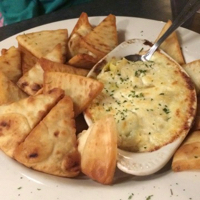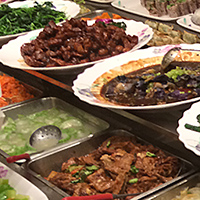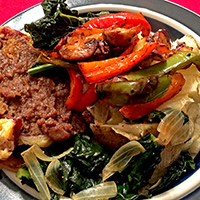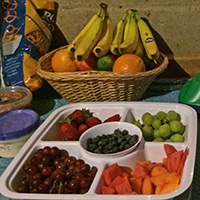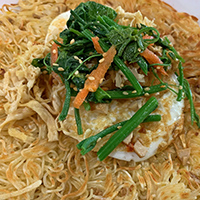OBJECTIVES By the end of this session you will be able to:
|
Tasks for this session
Before you come to class for our ninth class meeting:
Read
Instead of a reading assignment, we mark the middle of the semester with a sort of documentary film festival. You will spend about three hours watching documentaries, and then report to the class what you watched and what you learned.
Watch
The documentaries you can watch are available to you as batches or groups.
There are 25 different groups of documentaries. Choose any one of the 25 groups, and watch those. Almost all the sets of documentaries will take approximately three hours to watch (only a couple are significantly longer than three hours).
Group 1:
Spiral Bound: Student Education Activists (2014) 59 minutes.
Standing With the Women of Iraq (2005) 29 minutes.
Brother Outsider: The Life of Freedom Fighter Bayard Rustin (2002) 86 minutes
Group 2:
Wave Goodbye Dinosaurs Episode 1 of Women, War & Peace II (2019) 58 minutes
Eyes on the Prize volume 1 episode 1 Awakenings 1954-1956 (1986) 58 minutes and available in the Brookens Library (DVD).
Eyes on the Prize volume 1 episode 2 Fighting Back 1957-1962 (1986) 58 minutes and in the Brookens Library (DVD).
Group 3:
Step by Step Building a Feminist Movement 1941-1977 (1998) 57 minutes
The Mississippi Voter Registration Drive: Freedom Bound (1963) 28 minutes.
On a Knife Edge: A Lakota Teenager Fights for Social Justice. (2017) 90 minutes.
Group 4:
Julian Bond - Reflections from the Frontlines of the Civil Rights Movement (2012) 34 minutes.
Investigation of a Flame- The Activism of the Catonsville Nine. (2001) 46 minutes.
Fierce Light: When Spirit Meets Action. Spiritual Activism. (2008) 99 minutes.
Group 5:
Copwatch An organization dedicated to filming the police (2017) 99 minutes.
Posh Corps: Peace Corps in South Africa. (2013) 77 minutes.
Group 6:
Badass Beauty Queen: Fighting for Human Rights in China. (2018) 66 minutes
Berkeley in the Sixties (1990) 188 minutes
Group 7:
A Crushing Love Chicanas, Motherhood and Activism. 59 minutes
Women's March: Women Protesting for Democracy and Human Rights (2017) 31 minutes.
American Commune: America's Largest Socialist Experiment (2013) 91 minutes.
Group 8:
A River Below The Ethics of Activism in the Modern Media Age. (2017). 88 minutes.
Voices from the Front - AIDS Activism. (1991). 93 minutes
Group 9:
Alice's Ordinary People The Chicago Freedom Movement. (2012). 57 minutes. and in the Brookens Library (DVD): Video Collection- Level 2- E185.93.I2 A45 2012
Joanna Macy and the Great Turning (2014) 27 minutes
Land of Opportunity. (2011) 98 minutes.
Group 10:
#ReGENERATION — Social Activism (2012) 80 minutes.
Every Three Seconds: Choosing Action Over Apathy. (2014). 101 minutes
Group 11:
This Is What Democracy Looks Like. A gripping document of what really happened on Seattle's streets. (2002) 70 minutes
How To Change The World The Story of Greenpeace. (2015). 111 minutes
Group 12:
Freedom Summer — Mississippi. 1964. (2014) 116 minutes, and in the Brookens Library (DVD): Video Collection- Level 2- E185.93.M6 F7443 2014
Passionate Politics: the life and work of Charlotte Bunch (2011) 65 minutes and in the Brookens Library (DVD): Video Collection- Level 2- HQ1413.B86 P37 2011 pt.1 and pt.2
Group 13:
After Stonewall (2005) 87 minutes and in the Brookens Library (DVD): Video Collection- Level 2- HQ76.8.U5 A384 2005
Requiem for the American Dream (2016) 73 minutes
Growing People: Young People Building Community at a Hawaiin Farm (2013) 19 minutes
MA'O Organic Farms, in the historical marginalized rural community of Wai'anae, O'ahu, is the site of a groundbreaking youth leadership program that has impacted the lives of hundreds of Hawaiian youth. This short documentary provides an intimate look at the MA'O program through the stories of three of these youth, sisters Miki, U'ilani and Sheila Arasato.
Group 14:
WAR / PEACE Lessons in Activism from the Weather Underground. (2017) 61 minutes.
Miles of Smiles, Years of Struggle (1989) 60 minutes, and in the Brookens Library (DVD): Video Collection- Level 2- HD6515.R36 M544 1983
Standing on my Sisters' Shoulders (2002) 61 minutes, and in the Brookens Library (DVD): Video Collection- Level 2- E185.86 .S73 2002
Group 15:
Ida B. Wells: A Passion for Justice (1989) 55 minutes, and in the Brookens Library (DVD): Video Collection- Level 2- E185.61 .M324 2013
Resistance at Home American's Opposing the War in Iraq. Episode 11 of Shocking and Awful. (2005) 29 minutes
American Socialist: The Life and Times of Eugene Victor Debs (2017) 98 minutes.
Group 16:
A Philip Randolph: For Jobs and Freedom (1996) 88 minutes, and in the Brookens Library (DVD): Video Collection- Level 2- HD6509.R2 A65 1996
Battle for Brooklyn: Fighting to Save a New York Community (2011) 94 minutes.
Group 17:
Feminism Inshallah A History of Arab Feminism. (2014) 55 minutes.
Wisconsin Rising - The Workers' Resistance Movement, Sam Mayfield. (2014). 57 minutes.
Blueberry Soup. The Icelandic "People's Movement” (2015) 73 minutes.
Group 18:
The Shape of Water: Women in the Developing World Offer Solutions (2006) 71 minutes. Also available in the Brookens Library (DVD): Video Collection- Level 2- HQ1236 .S44 2006
The Art of Resistance Art in Response to War Episode 4 of Shocking and Awful (2005) 29 minutes
Show Me Democracy: Student Activism Admist the Uprising in Ferguson (2017) 85 minutes.
Group 19:
Frontline: Documenting Hate - Charlottesville. Also available on the PBS website. (2018) 54 minutes.
Union Maids: Women Activists Share their Experiences (1976) 48 minutes and in the Brookens Library (DVD)
ACORN and the Firestorm If you were impoverished and politically voiceless, ACORN hoped to change your mind. For 40 years, the community-organizing group sought to empower marginalized communities. Its critics, though, believed ACORN exemplified everything wrong with liberal ideals.
Fueled by a YouTube video made by two young conservatives who posed as pimp and prostitute in a sting, ACORN's very existence came under fire. ACORN AND THE FIRESTORM goes beyond the 24-hour news cycle and cuts to the heart of the great political divide. (2017) 84 minutes
Group 20:
Everyday Rebellion. Modern Forms of Non-Violent Protest. (2013) 111 minutes
Beyond Recognition Women Preserving Native Culture (2014) 25 minutes
Puzzles: When Hate Came to Town (2014) 51 minutes
Group 21:
The Campaign follows the people behind California's historic No-on-8 campaign to defend same-sex marriage (2013) 60 minutes.
Who Cares About Kelsey? Video 1 of playlist "Who Cares About Kelsey? - Helping Students with Emotional and Behavioral Challenges Succeed”. (2013) 57 minutes.
Union Time: Fighting for Worker’s Rights. (2019) 70 minutes
Group 22:
Defiant Lives The Rise Of The Disability Rights Movement (2017) 85 minutes
How to Start a Revolution (2012) 83 minutes
Activists. Part of the Series: Advocates of Change (2011) 24 minutes
Group 23:
Fearless: The Stories of Those Who Disappeared During the Guatemalan Civil War (2017) 78 minutes
500 Years: Life in Resistance. (2017). 109 minutes.
Group 24:
Disturbing the Peace: An Artist Investigatigates Corruption in China (2009) 80 minutes
Granito: How to Nail a Dictator (2011) 105 minutes
Group 25:
Our Disappeared This documentary follows a journalist’s attempts to look up the families persons he knew as a young adult in Argentina. The documentary describes the horrific violations of human rights and the murders of many activists in the 1970s. (2008) 101 minutes
We Will Win Peace goes behind the scenes of humanitarian advocacy and activism in the United States (2015). The documentary shows how a well-meaning campaign to ban minerals mined in the Democratic Republic of the Congo did not give the desired result of better livews for persons in the Congo. 99 minutes
Group 26:
Cody High Cody High: A Life Remodeled Project focuses on the efforts of Detroit's impoverished Cody Rouge community to remove blight and create a safe environment for students at the local schools, including the hundreds of students who attend Cody High School.
In 2014, residents of Cody Rouge, in partnership with Life Remodeled, a Detroit-focused non-profit organization and 10,000 volunteers rose up to bring new life to the troubled neighborhood. Together they remodeled three schools, tore down three burned-out houses, remodeled 25 homes of students and their families, boarded up 254 vacant houses, and brought beauty back to 303 blocks of Detroit. Cody High: A Life Remodeled Project skillfully portrays the powerful stories of community members and volunteers who were involved. It documents how community institutions, especially churches and other faith based groups have mobilized the larger community to become beacons of hope within the great city of Detroit. (2014) 80 minutes
Place Matters. Why is your street address such a good predictor of your health? Latino and Southeast Asian immigrants like Gwai Boonkeut have been moving into long-neglected urban neighborhoods such as those in Richmond, California, a predominantly Black city in the San Francisco Bay Area. Segregation and lack of access to jobs, nutritious foods, and safe, affordable housing have been harmful to the health of long-time African American residents, and now the newcomers' health is suffering too.
As Harvard's David Williams reminds us, "Housing policy is health policy. Neighborhood improvement policies are health policies. Everything that we can do to improve the quality of life for individuals in our society has an impact on their health and is a health policy." (2008) 31 minutes
How We Grow: Communities Rebuilding Themselves Around Agriculture.
A coming of age story of a community re-learning how to work together and growing stronger in the process. Inspired by the drive and dedication of the next generation of agricultural leaders in the Roaring Fork Valley, the community explores how to overcome pressing issues.
Land access, income inequality, and a short growing season turn from barriers into levers as these ambitious young farmers discover ways to get healthy, sustainability produced, locally grown, nutrient dense food onto the tables of everyone in the community. (2018) 65 minutes
Group 27:
The Blood is at the Doorstep. After Dontre Hamilton, a black, unarmed man diagnosed with schizophrenia, was shot 14 times and killed by police in Milwaukee, his family embarks on a quest for answers, justice, and reform as the investigation unfolds. Filmed over the course of three years in the direct aftermath of Dontre's death, this intimate verite documentary follows his family as they channel their grief into community organizing in an attempt to reset the narrative. Offering a painfully realistic glimpse inside a movement born out of tragedy in what the Hollywood Reporter calls "An urgent report from the front lines of an American crisis." (2018) 91 minutes
Clinica De Migrantes. Poverty-stricken and without medical insurance, the patients at Puentes often have nowhere else to turn for medical care. In addition to the patients, the film follows the tireless clinic staffers who treat around ten thousand patients each year with limited space and even less funding.
As it plans a larger facility to accommodate its rapidly increasing demand, Puentes' executive director Dr. Steve Larson and his team must find a way to keep their practice running in spite of obstacles at every turn. Highlighting the admirable doctors, their patients and the bonds built between them, this inspirational, thought-provoking film forces us to consider whether America can continue to keep basic necessities from the estimated eleven million undocumented immigrants living within its borders. (2017) 40 minutes
The U Turn (English). This documentary tells the story of a group of Guatemalan immigrant women and children who broke the silence about the abuses committed against them at the Agriprocessors, Inc plant in Postville, Iowa. Thanks to the solidarity of the community that accompanied them and to the U Visa, they transformed their lives. (2017) 59 minutes
Tasks
Activity One
In the eighth week of class in Fall 2021 we begin the week with a Zoom or classroom class meeting. So, while you should be participating in the discussion boards on Canvas, take note of how long we meet for the 8th class meeting, and subtract that time from 3.5 hours to see how much time you need to devote to our discussion boards on Canvas.
Activity Two
You need to pick a batch of documentaries and watch them. You need to take notes so that you can present a synopsis of what you learn from each of the documentaries in the batch you choose to watch.
Activity Three
I’m assuming you are still planning and inviting people to a gathering for your first experiential learning assignment. Maybe this takes an hour. (experiential learning assignment #1)
Activity Four
You should continue to participate in the group or organization you have involved yourself with, and I assume you might need a couple hours this week to stay involved in the group or organization (experiential learning assignment #3)
Activity Five
You should probably be finishing up your assignment to figure out how you might seek a connection or collaboration with someone who would normally be an opponent or adversary, allowing about an hour for this.
Activity Six
You had better get working on your grand challenges paper. Probably allocate about 90 minutes to read up on your topic and do some background/library research.
Plan for our class meeting in Session 8
1. Check in.
2. Discuss any macro practice that has been in the news.
3. Discuss feature films you watched in session 5 (if we haven't done that yet)
4. Discuss meetings. Do a Kahoot quiz on the readings assigned in Session 7
5. Do a simulation of a meeting. (Described in the Session 6 guide)
6. Discuss the Dudley Street documentary.
7. Talk about what should be done to protect The Tenderloin neighborhood from the hotel development (scenario described in the Session 7 guide).
Session Time Budget
3h 30m |
Canvas Discussion Boards and our class meeting at the start of the eighth session |
3h 15m |
Watching any one of the 25 sets of documentaries, and watching the set and taking notes on those documentaries |
1h 20m |
Work on your Grand Challenges paper (probably just reading and research, and not writing yet) |
1h 55m |
Participate in a group for your third experiential learning assignment |
1h |
Work on your first experiential learning assignment, arranging or holding a get-together with some friends and some people you do not know well. |
30m |
Work on your fourth experiential learning assignment. Develop your plan or letter or proposal to work in collaboration with someone you normally would oppose. |
Discussion Board Questions (Activity One)
Go into Canvas, log in, and respond to the discussion questions for this session.
These are:
DQ 8-1: Check In
Check in for the eighth week of the semester. Tell us what is going on. Share something you have done in the recent days or weeks that you feel good about.
DQ 8-2: Organizations you admire and respect
Share with us an organization you really admire. For example, if you had to give $10,000 to some worthy group or agency, to whom would you give it, and why? You can talk about some of the organizations you most respect or admire or appreciate.
DQ 8-3: Reports from the field
Share some of your experiences as you work on your experiential learning assignments. As you write things up for your learning journal, you could submit your write-ups here in the discussion board and get feedback on them.
DQ 8-4: Should they oppose the hotels?
In the scenario shared with you in the 7th session guide there was an organization called the North of Market Planning Coalition, and they were considering what they ought to do about the planned development of three massive luxury hotels in the Tenderloin neighborhood. Should they fight the three hotel developments? If so, how? If not, why not?
What might North of Market Planning Coalition gain from a fight against the proposed hotel developments? What might go wrong?
DQ 8-5: Grand Challenges
As you consider the tasks that must be accomplished in order to achieve the Grand Challenge you have chosen for your paper, what do you perceive are some of the most difficult things that must be accomplished? In other words, if our society does not meet the goals of the social work grand challenge you are studying, what do you think is most likely to cause our inability to meet the target or goal?
DQ 8-6: Losing can bring gains
In the scenario we studied last week in preparation for this week, if North of Market Planning Coalition (NOMPC) fights the hotel developments, and loses (as it probably will), what else might it accomplish through the fight against the hotels?
DQ 8-7: Describe the documentaries you watched
Describe to us the documentaries you watched in the 8th session. What did you learn? What were the central messages or message of the documentary? How did the documentary convey the messages of the story? What was effective in the story-telling, to help the audience understand the central message.
DQ 8-8: Analyzing the documentary as a social worker
People who make documentaries are good at story-telling and finding compelling images or words, and presenting those images and actions and words to an audience in a way that engages the audience and inspires them or triggers strong feelings or deep thoughts. The documentaries you were watching in this session are all about activists, social movements, policy practice, or macro practice interventions, and these are topics you are learning about in this course.
Sometimes to tell stories about such things, people who make documentaries might sacrifice realistic explanations of how things actually happen; perhaps they do this to keep the story shorter and easier to understand. For each of the documentaries you watched, what did you notice that the filmmaker left out? What was portrayed in ways that were unrealistic? What things went unexplained? Did the narrative of the documentary focus on one person (perhaps to keep the story simple) without adequately explaining how groups of people worked together? Or, if the films you watched did sufficiently highlight the contributions of a group, and organizing, and collective efforts, did it show how this happened? Maybe the documentary showed how things did not work well, as well as how some things were successful. Share with us your analysis of how the films you watched would work (and not work) to help audiences understand some of the principles and best practices in macro practice.
DQ 8-9: What it took to get universal preschool
To participation in this discussion thread, please watch the short (10 minute) video about the campaign to establish free universal preschool in Portland, Oregon. This measure passed with 64% voting in favor. Could a group in some city or county of Illinois possibly get a similar measure passed? What do you think it would take to get a measure like this passed in some part of Illinois? Which part of Illinois do you think would be most likely to pass such a measure? Can you think of any other policy that might dramatically improve life at the local level that could possibly be passed through a local referrendum?
Interesting Stuff To Explore (optional stuff)
In addition to watching the documentaries that were part of the group you chose to view, why not watch another documentary or two that seem like they would be interesting to you? There are over 60 documentaries listed for people to watch this session, and surely there would be five or six of those that would interest you.
Your readings recently covered some ideas about self-interest. One rule of organizing and macro practice is that you have to ask questions that bring people to see how their own self-interest is associated with the goals of what the group is trying to do. The most obvious sort of self interest would be something like economic self-interest, or personal safety, or increasing power, or improving health. There are other sorts of self-interest as well, and these might be more abstract. Many of us have a desire to live according to a set of values, or a moral code, or an idealized image of the sort of person we ought to be. We might have a self-interest in helping others because in helping others we are gaining an opportunity to live our lives as we prefer to live. Or, we may simply have the sorts of personalities and orientations that give us a kick out of being helpful, or we might feel a sense of achievement or satisfaction if we can successfully help others. That can also be a sort of self-interest.
Sometimes people debate whether there is really any selfless act, or whether we always motivated by selfish drives. I think it is helpful to remember, when we encounter such debates, that the very concepts of “selfish” and “selfless” are abstractions we have invented, and may not really apply in all situations in the objective reality outside of our minds and languages. In general, the term “selfish” is used to mark behaviors as worth of condemnation, because the person perpetuating the activity is erring too far in looking for personal and individual gain, and is not sufficiently concerned with the group’s interest. In general, “selfless” is a term we apply to actions where there is no obvious or immediate material gain for the person who engages in the activity. Someone who sacrifices their own life to save the lives of others, for example, would be doing a “selfless” activity. “Self-interest” is a term we can use to describe something between those extremes. A better activist isn’t looking for people to be selfless, and of course we don’t want selfish actions either; what we want is people who understand their own values and preferences and self-interest, and will work with others on issues of common self-interest.
Consider how you might ask questions that help people see their own self-interest in the sort of activity that we might engage in through macro practice. Consider how finding common self-interest might offer you a chance to connect with someone. Think about your experiential learning activities. In the meeting with persons you did not know well, you were looking for issues of common concern. In essence, you were looking for common self-interest. In the exercise where you approached a person with power or influence, you were also interested in how they decided where to use their power and influence to make society better, and chances are good that self-interest was involved in their concerns. When you get involved with an organization that is making a difference, you will find that the people involved in that organization probably share some sorts of self-interests, so consider what those are. When you think of an area where you might collaborate with someone who is normally “on the other side” in disputes, you are essentially looking for some area of common self-interest and common values.
When it comes to issues of self-interest, there are many worthy targets for us. Here is a list of nine to consider:
1) End homelessness. Ensure everyone has housing.
2) Prevent or reduce the harms of mental illness, addiction, criminal activity, violence, and racism. Ensure that more people have greater success in their lives and a reduced risk of enduring horrible experiences or life-ruining events.
3) End poverty. Make sure everyone has sufficient resources so they can be included in community life, and not face a level of real material deprivation where they become miserable, desperate, unhealthy, or socially isolated.
4) End unfair and unjust treatment of persons who belong to historically oppressed groups. For example, ensure women don’t have to deal with rape culture or systematic devaluing of their work and abilities. Ensure ethnic minorities don’t have to live in a culture where many people prefer high levels of social distance from them, fear them, dislike them, or hold prejudicial views about their worth or abilities or moral character. Likewise, ensure that persons with uncommon ideas about their own gender, or unusual gender situations, or romantic and sexual attraction to persons of the same gender can live without hostility and prejudice directed against them.
5) Reduce unemployment and underemployment and detachment from the labor force. Ensure that anyone who is willing to work and able to work can find a way to engage in labor and earn for themselves a means to a life where they can meet their material needs.
6) End social isolation. Ensure that everyone can connect with a network of persons who care about them and share time with them, and make sure that elderly persons, persons living with disabilities or impairments, and persons in poor health are integrated into society so that they can have healthy friendships and enjoy the company of people who know them and care about them.
7) End cruel treatment and use of animals, or stop the extinction of species. Ensure that animals under our protection (domestic livestock and companion animals) have decent lives, and that when we use animals for our benefit we do not treat them as objects without minds and feelings, but instead respect some level of dignity and inherent value in the lives of animals, including a respect for their rights to not be treated with cruelty or inflicted with pain.
8) End war. Ensure that people are aware of the horrors of war and will not tolerate warfare as a response to disputes, except possibly the use of international military force to subdue rogue governments that would inflict war on their own people or other nations. Ensure that peace is so firmly established and effected that military expenditures can be dramatically reduced, and public resources can be shifted to more worthy common investments, or else returned to individual taxpayers.
9) Reduce crime and end our widespread use of incarceration. Ensure that persons who commit crimes are allowed to learn from their errors and contribute to redress the harms they have caused, and ensure that we only remove people from society when those people pose a continuing danger to society and property, or when those persons have demonstrated that they will not be rehabilitated. Use the justice system to rehabilitate and reform every person who can be turned away from criminal behavior, and only use the punitive aspects of incarceration to the extent that they are actually necessary or effective in protecting society from crime. Ensure that more resources go toward reducing crime through prevention, so that fewer resources need be wasted on incarceration.
For each of these nine causes that we might address through some form of macro practice, consider how you have a self-interest in achieving each of these goals. How might you ask questions of someone to help them see whether they have any self-interest in achieving the goal?
Come to the next class ready.
Come to our ninth class ready to discuss the documentaries you watched. Each student will make a ten minute presentation on their group of documentaries.

















